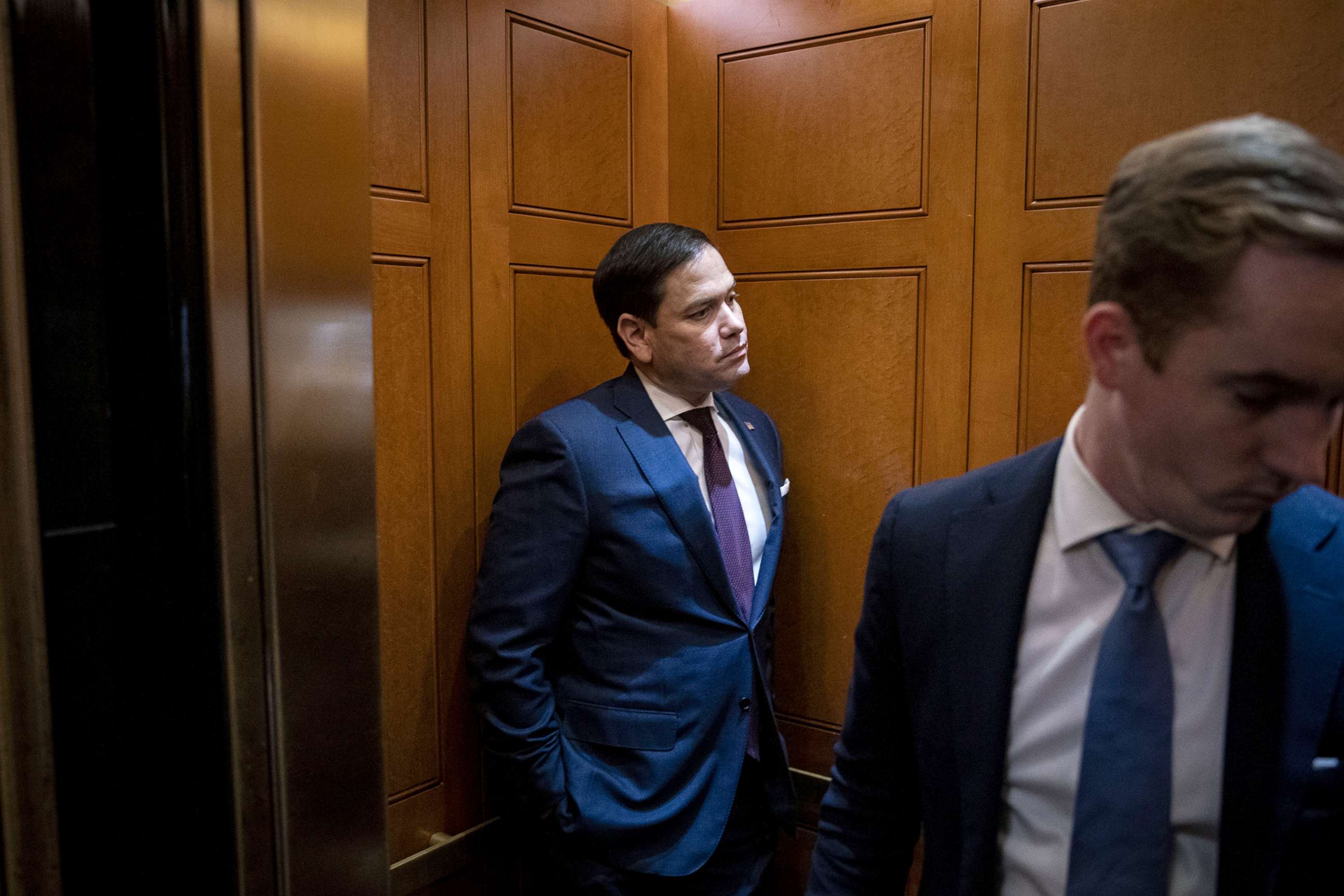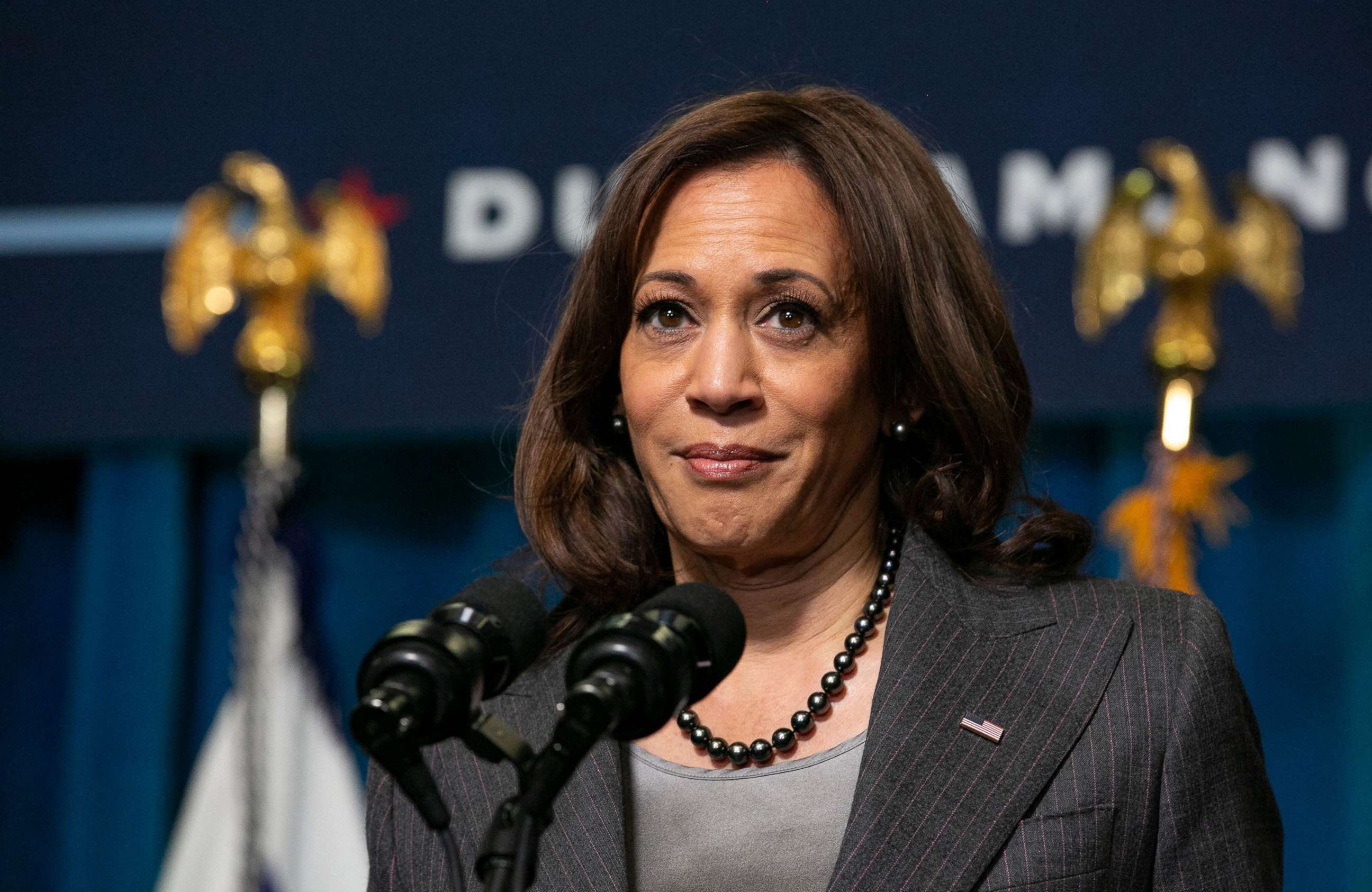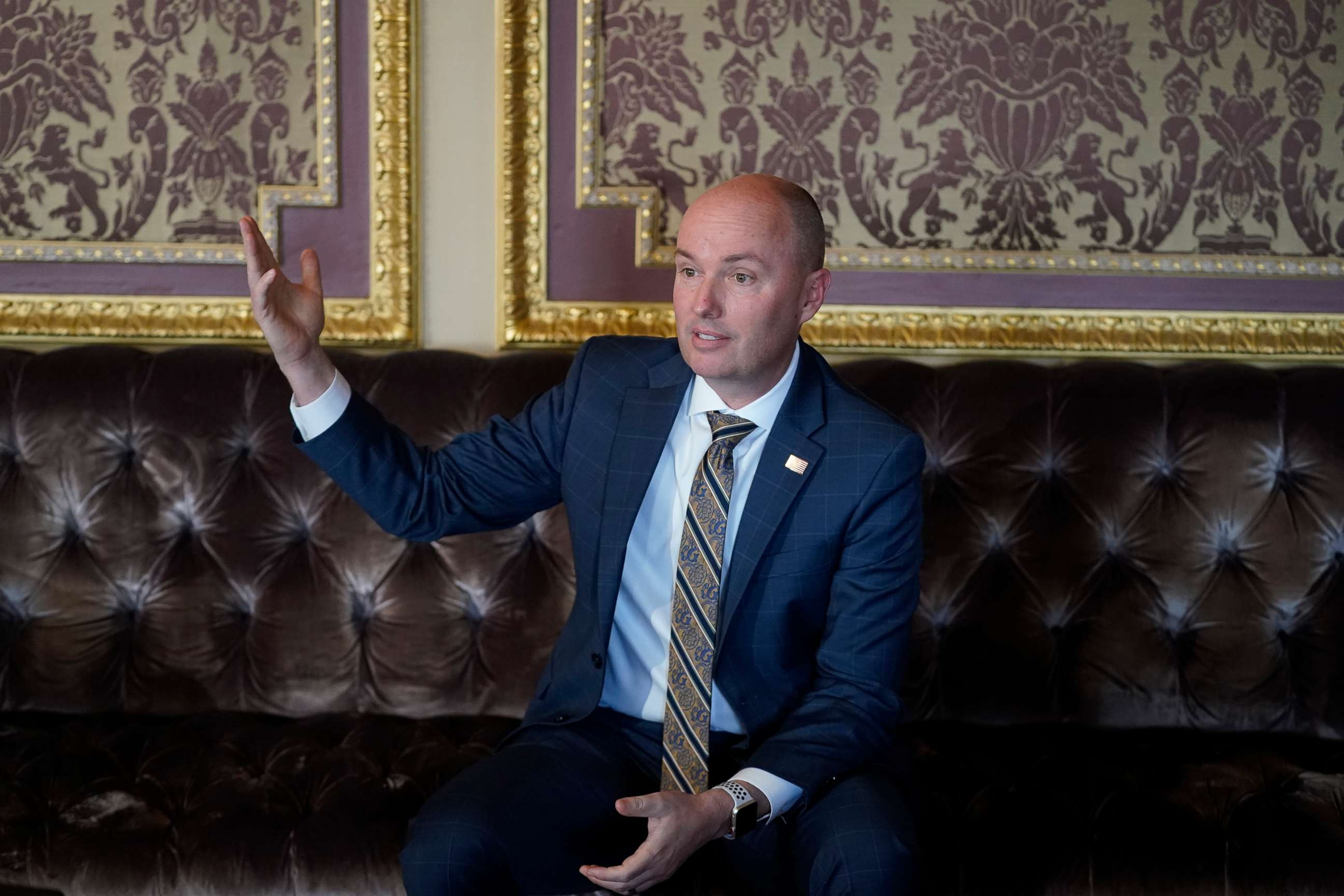US unity on Ukraine frays as crisis continues: The Note
Consequences of ruling out U.S. military involvement will grow more complicated.
The TAKE with Rick Klein
It turns out that achieving unity may have been the easy part, for once.
The last week has displayed remarkable resolve on the part of the world community and even broad political agreement back home. The rallying behind Ukraine has served one big purpose: to isolate Russian President Vladimir Putin.
What comes next, though, is less clear -- and holds potential for reverting back to political grooves in ways unlikely to be helpful to the Biden White House.
Bipartisan pressure has been building for days to halt Russian energy imports. There are signs the Biden administration is ready to embrace the concept, though not without worries about gas prices and what such a move would mean for the president's climate agenda.

On the military front, consensus remains around keeping the U.S. from directly engaging with Russia. A no-fly zone, though requested by Ukrainian President Volodymyr Zelenskyy, is being rejected by lawmakers including Sen. Marco Rubio, who said on ABC's "This Week" on Sunday that enforcing it "means starting World War III."
But with the administration already seeing evidence of war crimes committed by Putin and far worse suffering likely, the consequences of ruling out U.S. military involvement will grow more complicated. Decisions around what types of weapons to provide and how to support Ukrainian forces short of fighting alongside them will take on greater meaning.
President Joe Biden used his State of the Union address last week to assure the American people that, despite the current crisis, "we're going to be OK." That can't and won't be the last assurances over what could be an extended period of violence and unease.
The RUNDOWN with Averi Harper
Vice President Kamala Harris marked the solemn anniversary of Bloody Sunday with remarks on voting rights in Selma, Alabama.
"President Biden and I are working for this cause every day, we have put the full power of the executive branch behind our shared effort," Harris said. "And if we all continue to work together, to march together, to fight together, we will secure the freedom to vote."
It has been exactly 57 years since state troopers assaulted hundreds of peaceful demonstrators who were calling for equal access to the ballot box for Black Americans. Among the protestors brutalized on March 7, 1965, was John Lewis, the civil rights icon and congressman. It has been nearly two years since his death.

President Joe Biden did not go to Alabama to participate in the commemoration. The White House issued a statement instead.
"We are determined to honor that legacy by passing legislation to protect the right to vote and uphold the integrity of our elections, including the John Lewis Voting Rights Advancement Act and the Freedom to Vote Act," Biden wrote.
The reality is that voting reform legislation, including the legislation that bears Lewis' name, has languished in the Senate without any clear path forward before many Americans head to the polls for midterm elections.
The "determination" of the White House on this issue has not garnered support from Republicans, who remain staunchly opposed, nor has it moved Democratic holdouts Sens. Joe Manchin and Kyrsten Sinema to join their party in support of changing Senate rules to pass voting legislation with a simple majority. The likelihood of passing sweeping reform could lessen after Election Day as Democrats brace for the possibility of losing control of one or both chambers of Congress.
The TIP with Alisa Wiersema
For the first time this year, a Republican governor is poised to veto legislation that would ban transgender student-athletes from competing in girls' sports. The decision by Utah Gov. Spencer Cox comes as his party increasingly seizes on the culture war issue in an apparent attempt to mobilize the base.
The Utah governor previously supported the creation of a state commission of experts who would make individual decisions on transgender students participating in sports leagues. However, on Friday, GOP lawmakers ended up passing an alternative proposal that imposed an overall ban on transgender girls' participation in school sports.

Cox's vow to veto the legislation was met with praise from LGBTQ advocacy groups, including the Human Rights Campaign.
"Gov. Cox has shown he sees the humanity of the transgender youth impacted by this legislation — something Governors in states like South Dakota and Iowa have not," Human Rights Campaign State Legislative Director Cathryn Oakley said in a statement.
More than 100 bills "attacking transgender people have been introduced in state legislatures since 2020," according to the American Civil Liberties Union. As reported by the Associated Press, at least 11 states have passed legislation that bans transgender girls from participating in girls' sports leagues, including Alabama, Arkansas, Florida, Idaho, Iowa, Mississippi, Montana, South Dakota, Tennessee, Texas and West Virginia.
NUMBER OF THE DAY, powered by FiveThirtyEight
42. That's the number of states, including Washington, D.C., that impose restrictions on abortion in the U.S., and as FiveThirtyEight's Anna Wiederkehr and Amelia Thompson-DeVeaux write, these restrictions aren't just about when a woman can (and can't) have an abortion. They're also about time, resources and often creating an undue burden for women seeking abortions. And if the Supreme Court later this year upholds Mississippi's ban on abortions after 15 weeks, it will become just that much more challenging for many women to obtain an abortion.
THE PLAYLIST
ABC News' "Start Here" Podcast. Start Here begins on Monday with Col. Stephen Ganyard explaining the request for no-fly zones in Ukraine. Then, ABC's MaryAlice Parks describes the effect of the conflict on U.S. oil prices. And, ABC's Zohreen Shah reports on the case of a California woman accused of fabricating her own disappearance. http://apple.co/2HPocUL
Download the ABC News app and select "The Note" as an item of interest to receive the day's sharpest political analysis.
The Note is a daily ABC News feature that highlights the day's top stories in politics. Please check back tomorrow for the latest.




